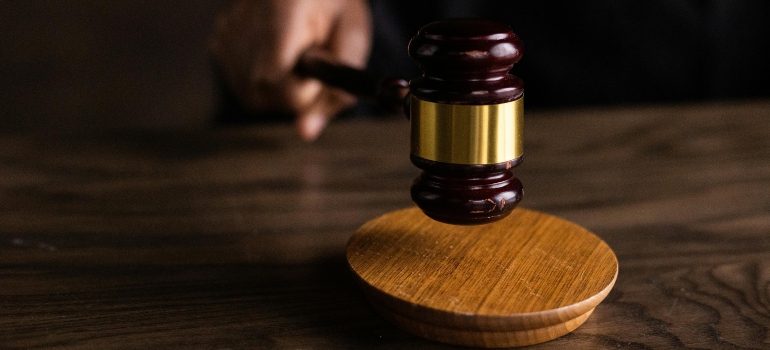West Virginia is at the epicenter of the opioid crisis, a grim reality marked by staggering rates of addiction and overdose deaths. This crisis isn’t just a statistic; it’s about real people struggling with addiction, often feeling trapped in a cycle that seems impossible to break. The impact is profound, affecting not only those directly struggling with addiction but also their families, friends, and the broader community. As we search for solutions to this complex issue, an innovative and somewhat controversial approach is emerging: the use of psychedelics in addiction treatment in WV. This idea might seem far-fetched or unconventional at first glance, especially given the historical stigma surrounding psychedelic substances. However, recent research is beginning to shed light on the potential these substances have for treating addiction. It offers new hope where traditional methods have fallen short.
What Is Psychedelic Science?
Psychedelic science is an area of research that focuses on studying substances known as psychedelics, which are types of drugs that can significantly alter a person’s mood, perception, and thought processes. These substances, including well-known ones like LSD (acid), psilocybin (found in magic mushrooms), and MDMA (ecstasy), have been used traditionally in some cultures and controversially in others for their mind-altering effects.

The goal of psychedelic science isn’t just to understand how these substances affect the brain and consciousness but also to explore their potential benefits, especially for mental health treatment. Researchers are particularly interested in how these drugs can help with conditions that are often resistant to traditional treatments, such as depression, post-traumatic stress disorder (PTSD), and addiction.
In simple terms, scientists in this field give these substances to study participants under controlled conditions, often alongside therapy sessions. They then observe and measure changes in the participants’ psychological well-being, behaviors, and brain activity. This research is carefully conducted with the approval of medical ethics committees and regulatory bodies to ensure the safety and well-being of participants.
History of Psychedelic Use in Therapeutic Settings
The use of psychedelics in therapeutic settings has a rich and complex history that spans several decades, featuring periods of intense research, controversy, and resurgence. Here’s an overview:
- 1950s–1960s: Early Research and Enthusiasm: The therapeutic use of psychedelics began to gain traction in the 1950s and 1960s. Scientists and psychiatrists became interested in substances like LSD and psilocybin for their potential to treat a variety of mental health issues, including alcoholism, depression, and anxiety. A significant amount of research and clinical trials marked this period.
- Late 1960s–1970s: Stigma and Legal Crackdown: However, the widespread recreational use of psychedelics and the cultural movements of the 1960s led to a growing stigma around these substances. Concerns over their safety, the potential for abuse, and their association with anti-establishment movements prompted governments worldwide to impose strict regulations.
- 1990s–Present: Renaissance and Renewed Interest: Fast forward to the late 1990s and early 2000s, and there’s a renewed interest in studying psychedelics for therapy, known as the “psychedelic renaissance.” Thanks to new science and changing views on mental health and drug laws, researchers have the green light to study psychedelics again. This time, they’re really careful and are looking into how these drugs can safely help with PTSD, depression, anxiety, and addiction.
What Is the Therapeutic Use of Psychedelics Today?
Today, the therapeutic use of psychedelics is about using certain drugs, like LSD or magic mushrooms, in a controlled and safe way to help treat mental health issues such as severe depression, PTSD, anxiety, and addiction. This involves doctors and therapists guiding patients through their experiences with these substances in a supportive setting, aiming to help them uncover deep insights or make significant emotional breakthroughs that can lead to healing. Research and clinical trials are carefully done to ensure safety and to understand how these drugs can best be used to help people who haven’t found relief with traditional treatments. This approach is gaining interest and acceptance as more positive results emerge from ongoing studies.

Typically Used Psychedelics in Addiction Treatment in WV
Doctors often use substances like LSD (a strong drug that can alter perceptions), psilocybin (the active ingredient in magic mushrooms), and MDMA (often known as ecstasy) because they can deeply change the way people think and feel for a short time. These substances can help treat addiction by helping patients see their lives and choices from a new perspective.
LSD and psilocybin can create powerful, dream-like experiences where people see, think, and feel things in ways they normally wouldn’t. This can be like hitting the reset button on your brain’s patterns of negative thinking or being stuck in a loop of harmful behavior. For example, someone who’s addicted to cigarettes might have a psychedelic experience that helps them see how smoking is hurting their body and decide they want to quit.
On the other hand, MDMA works a bit differently. It can make people feel very open, loving, and trusting, which can be very helpful when talking about difficult or traumatic experiences with a therapist. For someone struggling with addiction, MDMA can help them understand and process the emotional pain or trauma that might be driving their addiction in a safe and controlled environment. This can lead to a big emotional release and a sense of healing.
Clinical and Scientific Research on Using Psychedelics in Addiction Treatment in WV
In recent years, there’s been a lot of scientific research looking into how psychedelics can help with addiction and other mental health issues. Scientists conduct studies where they give these drugs to people in a controlled environment, often with therapy sessions included. They then carefully watch what happens. For example, one study with psilocybin showed that people who had been struggling to quit smoking found it easier to stop after having therapy sessions that included psilocybin.
Another study found that MDMA helped people with PTSD feel better, which is important because sometimes people use drugs or alcohol to try to cope with PTSD symptoms. These studies are important because they help scientists understand not just if these treatments can work but also how they work and what they do in the brain. The goal is to gather enough evidence to make sure these treatments are safe and effective.
Ethical Considerations of Using Psychedelics in Addiction Treatment in WV
In psychedelic therapy, ethical considerations play a critical role in ensuring the well-being and dignity of patients. One major aspect is informed consent, which means fully explaining the treatment process, potential risks, and expected benefits to patients before they agree to participate. This is essential because psychedelic experiences can be intense and unpredictable, and patients need to understand what they’re getting into. Therapists must also ensure that patients are in a suitable mental and physical state to undergo psychedelic therapy.

Respecting patient autonomy goes hand in hand with informed consent. It means acknowledging that patients have the right to make their own decisions about their treatment based on their values, beliefs, and preferences. Therapists should provide information and guidance to help patients make informed choices, but ultimately, the decision should rest with the patient. This may include decisions about whether to participate in psychedelic therapy at all, what type of therapy to pursue, and how to approach it.
Furthermore, therapists must maintain strict confidentiality to protect patients’ privacy and trust. Patients should feel comfortable sharing personal and sensitive information during therapy sessions, knowing that it will not be disclosed without their explicit consent. Additionally, therapists must be mindful of power dynamics in the therapeutic relationship and strive to create a safe and supportive environment where patients feel empowered to express themselves openly.
Risk vs. Benefit Analysis
When weighing the risks and benefits of using psychedelics in addiction treatment in WV, it’s important to consider both sides carefully. On the one hand, the potential benefits can be significant. For instance, research suggests that psychedelic therapy may offer relief for conditions like treatment-resistant depression, PTSD, and addiction, where traditional treatments have fallen short. Patients may experience profound insights, emotional breakthroughs, and long-lasting improvements in their mental health and well-being. Additionally, the therapeutic effects of psychedelics can occur rapidly, leading to more immediate relief compared to traditional therapies.
However, it’s essential to acknowledge the potential risks involved as well. Psychedelic experiences can be intense and challenging, leading to feelings of anxiety, confusion, or even paranoia in some individuals. There’s also a risk of adverse reactions, particularly in those with underlying mental health conditions or a history of psychosis. In rare cases, psychedelic therapy can trigger distressing or traumatic experiences that may require additional support and intervention. Moreover, we don’t fully understand the long-term effects of repeated psychedelic use. This raises concerns about potential risks to mental health and cognitive function over time.
Legal and Regulatory Issues
The legal aspect of using psychedelics in addiction treatment in West Virginia is complex and heavily regulated. As of now, most psychedelics, including substances like LSD, psilocybin, and MDMA, are classified as Schedule I controlled substances at the federal level. This means they are considered to have a high potential for abuse and no accepted medical use, making it illegal to possess, manufacture, or distribute them for any purpose, including clinical use. However, there is growing interest and momentum in exploring the therapeutic potential of psychedelics, leading to changes in legislation and regulations in some jurisdictions.

In West Virginia, specifically, the legal status of psychedelics for clinical use remains unclear. While some states have implemented laws or regulations allowing for limited medical or research use of psychedelics under certain conditions, West Virginia has not yet taken similar action. As a result, the use of psychedelics in addiction treatment within the state is currently prohibited by law. However, it’s important to note that laws and regulations are subject to change, and there may be ongoing efforts to explore potential policy reforms or exemptions for psychedelic therapy in the future.
Other Addiction Treatment Options
In West Virginia, individuals struggling with addiction have access to a variety of treatment options offered by rehabilitation centers. These rehabs in WV typically provide tailored programs to meet the diverse needs of their clients. Some common modalities include:
- Inpatient Program: These programs involve residing at the treatment facility for a specified period, usually ranging from a few weeks to several months. Inpatient drug rehab in WV offers intensive, round-the-clock care and support.
- Intensive Outpatient Program (IOP): The intensive outpatient program West Virginia offers provides a more flexible treatment option for individuals who do not require 24-hour supervision but still need comprehensive support. Participants attend therapy sessions and other program activities several times a week while living at home or in a sober living environment.
- Long-Term Drug Rehab: Long term drug rehab WV offers typically last six months to a year or longer. These programs focus on providing comprehensive support and addressing underlying issues contributing to addiction.
- Partial Hospitalization Program (PHP): The partial hospitalization program West Virginia offers is a structured treatment during the day, providing medical and therapeutic support while allowing individuals to return home or to a supportive living environment in the evenings.
- Medication Assisted Treatment (MAT): The medication assisted treatment West Virginia offers combines medication with counseling and behavioral therapies to address substance use disorders.
- Dual Diagnosis Treatment: Many individuals with addiction also experience co-occurring mental health disorders, such as depression or anxiety. Dual diagnosis treatment West Virginia offers addresses both substance use disorders and mental health conditions concurrently.

Therapy for Addiction
Addiction treatment centers utilize a variety of evidence-based therapies that have been proven safe and effective for addiction treatment. These may include:
- cognitive behavioral therapy for substance abuse
- dialectical behavior therapy for addiction
- motivational interviewing for substance abuse
- family therapy for addiction
- group therapy for addiction
- individual therapy for addiction
Balancing Innovation and Ethics in Addiction Treatment
As we look at using psychedelics in addiction treatment in WV, we see a chance for change. But we need to think about ethics. We’ve talked about how important it is for patients to know what’s happening and to make their own choices. We’ve also looked at the rules and challenges we face. While psychedelics seem like they could really help, we need to be careful. We have to make sure we’re doing things safely and ethically. By focusing on keeping everyone safe, being open about what we’re doing, and putting patients first, we can use psychedelics to make a big difference in addiction treatment while still respecting people’s rights and dignity.



